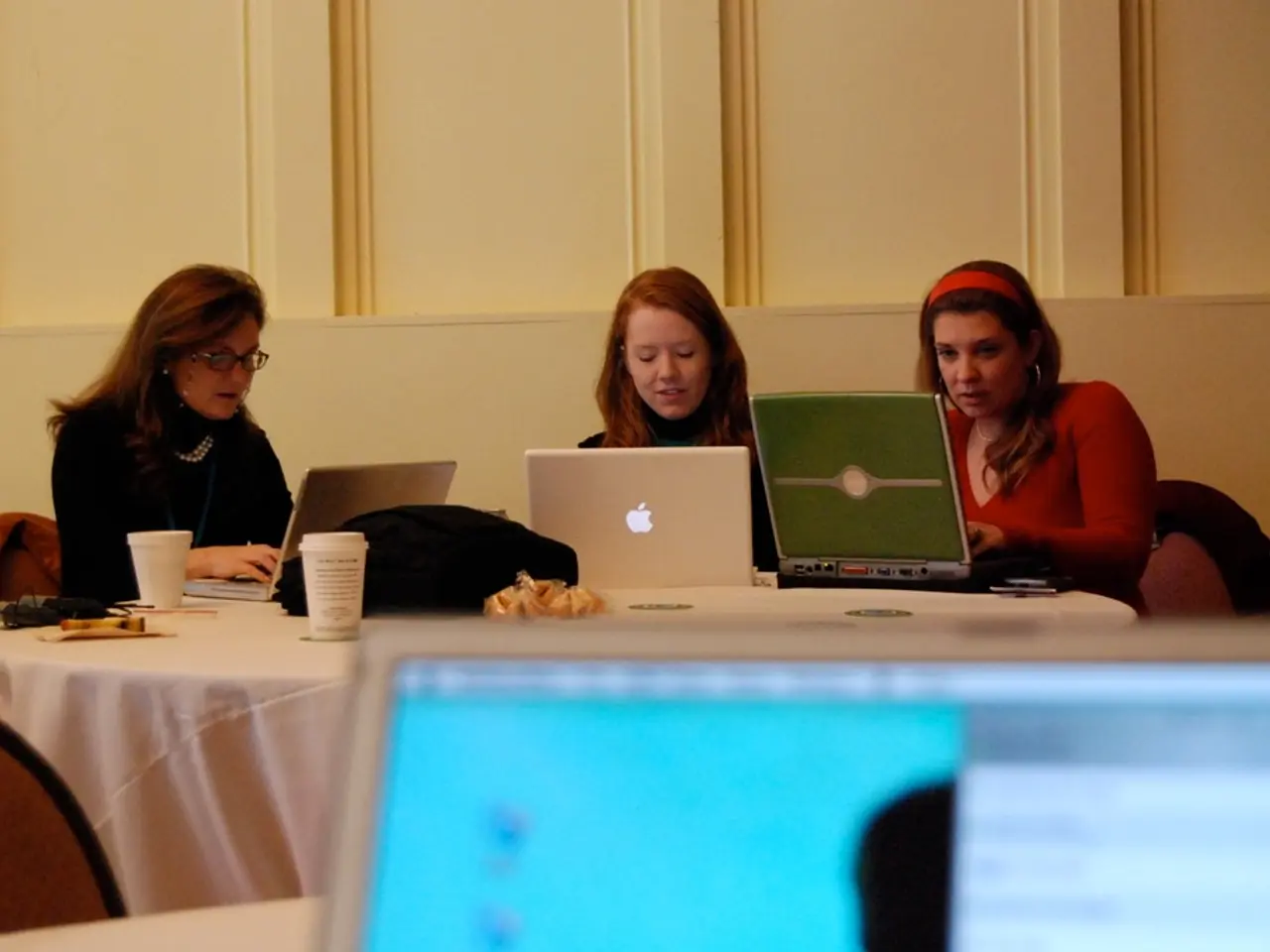AI-powered technology proposed by Zoom's CEO could potentially shorten the workweek to three days, yet this advancement may come at the expense of entry-level job opportunities.
In the rapidly evolving world of technology, the integration of Artificial Intelligence (AI) into workflows is becoming increasingly prevalent. Companies like Microsoft, Salesforce, and Zoom are exploring this frontier, with the aim of boosting productivity and freeing up time for more important tasks.
According to a report by Microsoft, the integration of AI could significantly enhance employee morale and performance index. By taking over mundane and repetitive tasks, AI would allow employees to focus on more daunting and meaningful tasks. This shift could potentially lead to a shorter workweek, a concept that has been floated by tech visionaries like Bill Gates.
Gates, the co-founder of Microsoft, has previously suggested that AI could create a 3-day workweek for professionals by the year 2023. However, the reality may not be as glamorous as it sounds. The possibility of a shorter workweek due to AI integration is being discussed, but it may also lead to job loss, particularly for entry-level white collar jobs. Anthropic CEO Dario Amodei claimed that AI could slash 50% of such jobs.
CEO Marc Benioff of Salesforce has revealed that the company is considering hiring software engineers to further integrate AI into its workflows. Salesforce already uses AI to handle up to 50% of its tasks, and the company has seen incredible productivity gains from agentic AIs.
The typical workday for an employee, according to the report, starts at 6 AM while they are still in bed, and doesn't end at 5/6 PM as expected. The weekend, particularly Sunday, is often used to prepare for Monday's meetings and leftover tasks from the previous week. This constant workload has led to a sense of being trapped in an "infinite workday" for most employees, as revealed by Microsoft's special Work Trend Index report, released in June.
The end-of-year fatigue conversations with friends often revolve around working 40 hours a week, leaving little time for rest, connecting with friends and family, and spending time outdoors. The workday doesn't end at the office, with most employees carrying work back home.
Zoom CEO Eric Yuan recently suggested that the broad adoption of AI could present a three-day workweek opportunity for employees. However, the potential job losses due to AI integration may particularly affect Gen Z, as claimed by Anthropic CEO Dario Amodei.
In conclusion, the integration of AI into workflows holds the potential for a shorter workweek, but it also raises concerns about job security. As companies continue to explore this frontier, striking a balance between productivity gains and job preservation will be crucial.
Read also:
- Hearings on the HHS Budget Detail a Fresh Approach for Public Healthcare Policies
- Navigating Life with PTSD: Techniques for Managing Anxiety and Recurring Flashbacks
- Headline: Brain Trauma Indications, Identification, and Solutions
- Nursing Homes Under Scrutiny Over Alleged Payments for Deceased Residents





